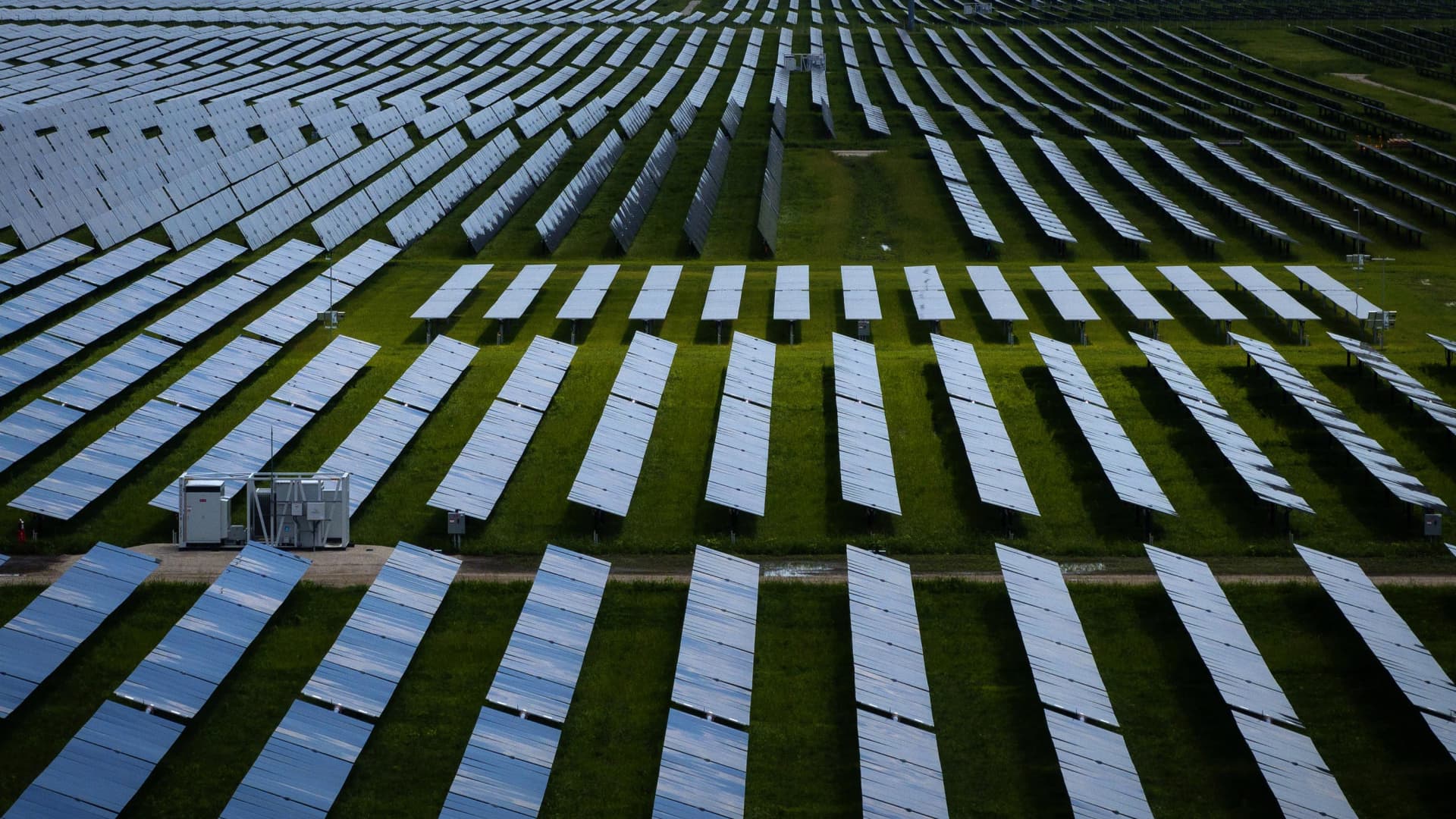Double Black Diamond Solar, set to become the largest solar farm east of the Mississippi River by July 31, 2024, faces challenges after House Republicans passed a tax bill terminating key clean energy credits. Solar stocks plummeted, with Sunrun dropping 37% due to the adverse impact on lease arrangements critical for 70% of the rooftop solar industry. Other companies like Enphase and SolarEdge saw declines of over 19% and 24%, respectively. The bill also ends investment credits for new clean energy facilities, though manufacturing subsidies remain intact for First Solar, the largest U.S. solar panel producer.
Double Black Diamond Solar, located near Waverly just south of Springfield, Illinois, is poised to become the largest solar farm east of the Mississippi River by July 31, 2024.
E. Jason Wambsgans | Tribune News Service | Getty Images
On Thursday, solar stocks experienced a significant decline after House Republicans approved a tax bill that abolishes critical clean energy credits.
The residential solar installer Sunrun saw its shares plummet by 37%. The new legislation eliminates tax credits for companies like Sunrun that lease equipment to consumers.
According to Jefferies analysts led by Julien Dumoulin-Smith, the GOP bill represents a “worse than feared” situation for clean energy, delivering a “sledgehammer” blow to the Inflation Reduction Act.
About 70% of the rooftop solar sector currently relies on lease agreements, making this bill particularly detrimental for firms like Sunrun, noted Guggenheim analyst Joseph Osha.
Enphase and SolarEdge fell by over 19% and 24%, respectively, as demand for rooftop solar is expected to drop.
The legislation also terminates the investment and electricity production credits for clean energy facilities that begin construction within 60 days post-enactment or are operational after December 31, 2028. These credits have been essential for the rapid growth of utility-scale solar projects in the U.S.
Solar stocks linked to the utility sector faced declines, with Array and Nextracker dropping by approximately 3%. Both companies produce devices that enable solar panels to track the sun’s position.
First Solar experienced a decline of more than 4%, although the bill left manufacturing tax credits largely intact. First Solar is the largest solar panel manufacturer in the U.S., boasting a substantial domestic manufacturing base.
“The subsidies for manufacturing seem to have been unaffected—this is positive news for FSLR,” Osha remarked. While the bill poses challenges for the solar industry, Jefferies anticipates amendments in the Senate.
